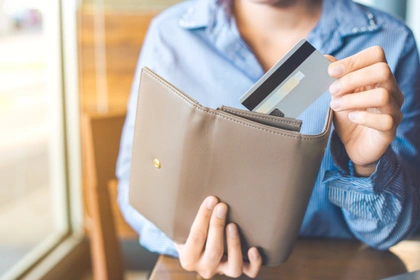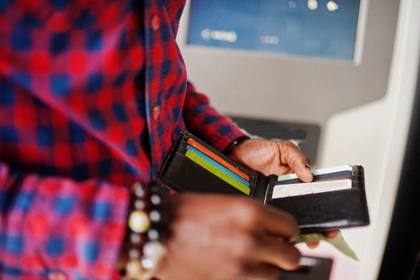Advantages and disadvantages of a credit card
Credit cards can be useful — but they also come with risks. Here’s a balanced look at the main pros and cons to help you decide if one suits your needs.
✅ Advantages:
- Build your credit history – Making regular repayments shows lenders you can manage credit well.
- Spread the cost of spending – Useful for big purchases you want to pay off in instalments.
- Purchase protection – Buy something between £100 and £30,000 and you’re protected under Section 75 of the Consumer Credit Act.
- Rewards and cashback – Some cards offer air miles, points or cashback on everyday spending.
- Emergency cover – A credit card can help with unexpected costs, like car repairs or a broken boiler.
⚠️ Disadvantages:
- High interest rates – If you don’t clear your balance, interest can stack up quickly.
- Late payment fees – Miss a payment and you could be charged around £12, plus interest.
- Credit score risk – Late or missed payments can damage your credit history.
- Debt spiral potential – It’s easy to overspend and get stuck in a cycle of debt.
- Temptation to spend – Credit can feel like free money — until the bill arrives.
When should I get a credit card?
You might want to consider a credit card if:
- You're over 18, live in the UK, and have a stable income
- You feel confident managing repayments and sticking to a budget
- You want to build or improve your credit score
- You’re planning a big purchase you want to pay off over time
- You’d benefit from extra purchase protection when shopping online or booking holidays
That said, if you're already struggling with debt or find it difficult to manage money, a credit card might not be the best option right now.
Ocean Credit Card
See if it's a YES before you apply
- Up to £8,000 credit limit
- Checking won't affect your credit score
- Get a response in 60 seconds
39.9% APR
Representative (variable)
Intelligent Lending Ltd (credit broker). Capital One is the exclusive lender.

When not to get a credit card
You may want to think twice about getting a credit card if:
- You’re regularly missing payments on existing credit or bills
- You find it hard to stick to a budget or avoid impulse spending
- You’re applying out of desperation to access cash
- You won’t be able to repay the balance in full or on time
Using credit cards recklessly can lead to high-interest debt, damage your credit score, and put you under financial pressure.
Should I get a credit card to improve my credit score?
Yes — but only if you can use it sensibly. Using a credit card and paying it off when due each month can boost your credit score over time. It shows lenders you’re a reliable borrower.
A credit builder credit card might be a good starting point if your credit history is poor or limited. These cards often come with:
- Low credit limits – to help you stay in control
- Higher interest rates – so it’s important to repay in full to avoid extra charges
What types of credit cards are available?
Here are a few common types:
- Credit builder cards – Designed for people with limited or poor credit histories.
- 0% purchase cards – Let you spread the cost of purchases interest-free for a set period.
- Balance transfer cards – Help you move existing debt from one card to another, often with a 0% interest period.
- Rewards cards – Earn cashback, points, or other perks when you spend.
How do I get a credit card?
Applying for a credit card is quick and can often be done online in minutes. But before you apply:
- Check your credit score – This gives you an idea of which cards you might be eligible for.
- Use an eligibility checker – To see your chances of approval without affecting your credit score.
- Compare cards – Look at interest rates, fees, credit limits, and any perks.
When applying, you’ll need to provide:
- Your name, address, and date of birth
- Employment status and income details
- Nationality and contact information
Should I get a credit card if I already have one?
Having more than one credit card isn’t necessarily a bad thing, as long as:
- You can manage all repayments comfortably
- You’re not close to your credit limits across multiple cards
Some people use different cards for different purposes — like one for everyday spending and another for emergencies.
Is a credit card right for me?
Ask yourself these questions:
- Can I afford to repay what I borrow each month?
- Am I confident I won’t overspend?
- Do I have a steady income?
- Am I using the card for planned spending, not out of desperation?
👉 If the answer is yes, a credit card could be a helpful addition to your financial toolkit.
👉 If the answer is no, it might be worth waiting or looking at other options like a savings buffer or budgeting app.
Disclaimer: We make every effort to ensure content is correct when published. Information on this website doesn't constitute financial advice, and we aren't responsible for the content of any external sites.






